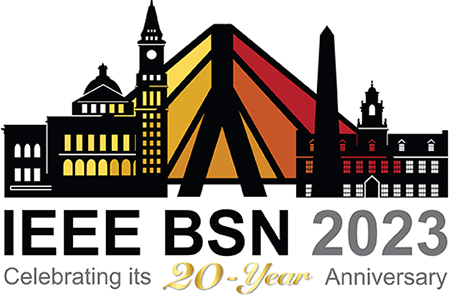Past, Present, and Future of Body Sensing and Digital Health
Description:
In celebration of the 20th anniversary of BSN, this special panel discussion is set to unveil the intricate journey of wearable computing and digital health research. With a focus on the past, present, and future of this transformative field, we aim to shed light on its remarkable evolution.
Our panelists, drawn from diverse backgrounds and representing various stages of their illustrious careers, include leading experts, pioneers, and innovators in the domain. Together, they will embark on an enlightening journey through the history of wearable technologies, illuminating pivotal milestones and groundbreaking moments that have sculpted today’s digital health landscape. The discussion will encompass insights into how the modest beginnings of early prototypes laid the groundwork for the sleek and sophisticated digital health solutions we now rely on. Moreover, we’ll cast our collective gaze into the horizon, offering visionary perspectives on the untapped potential of these technologies in revolutionizing healthcare delivery.
The panel discussion will commence with a series of questions posed by the moderator, allowing for a comprehensive exploration of the topic (30 minutes). Following this, the floor will be open to engage with the audience, fostering dynamic and interactive discussions (15-20 minutes).
Moderator:
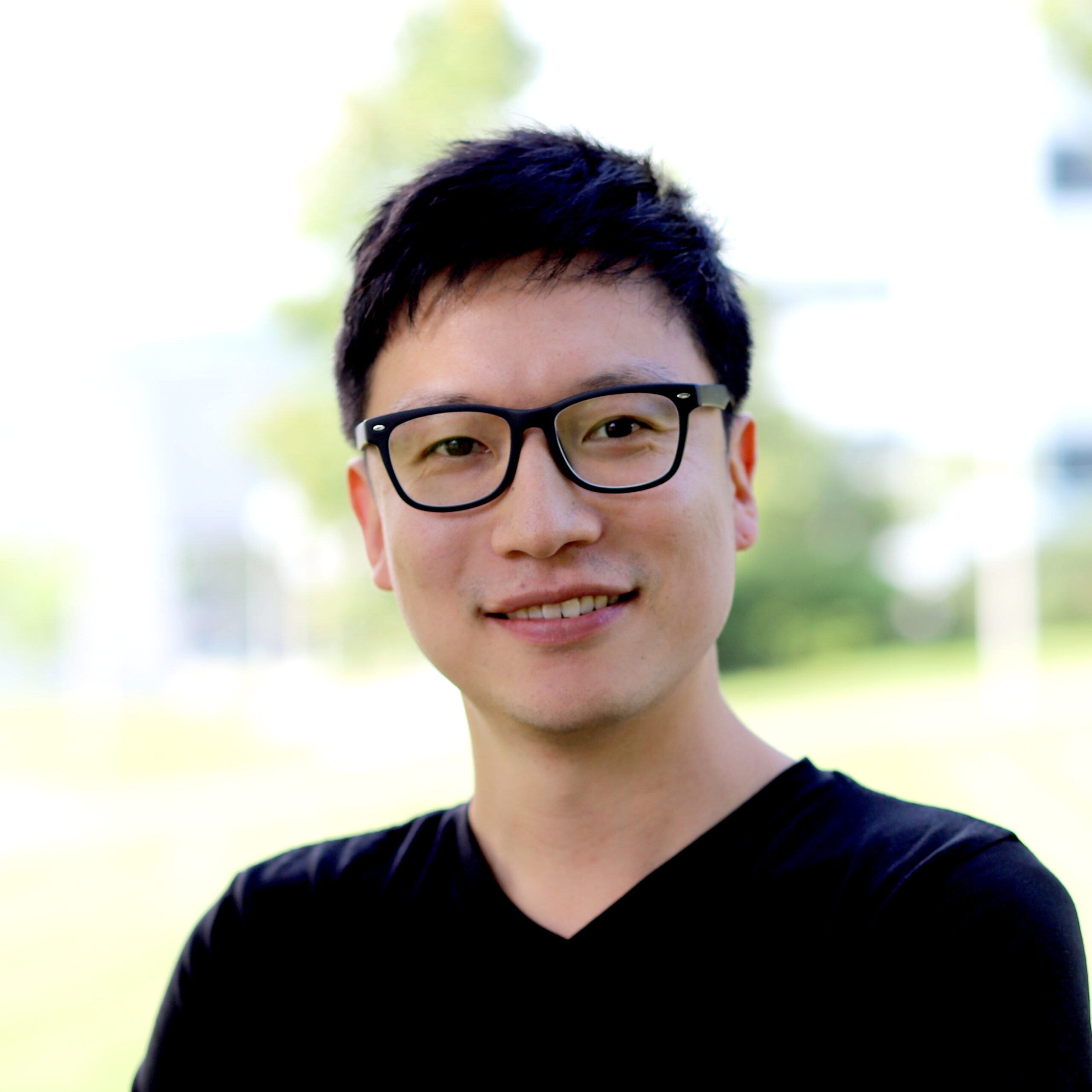
Sunghoon Ivan Lee, Donna M and Robert J Manning Faculty Fellow and Associate Professor, University of Massachusetts Amherst
Ivan Lee is a Donna M and Robert J Manning Faculty Fellow and an Associate Professor of Computer Science and of Electrical and Computer Engineering at UMass Amherst. He received his PhD in Computer Science, MS in Computer Science, and MS in Electrical Engineering, all from the University of California Los Angeles in 2010, 2013, and 2014, respectively. From 2014 to 2016, he was a post-doctoral fellow in the Department of Physical Medicine & Rehabilitation at Harvard Medical School. Ivan is a recipient of the NSF CRII Award and the NIH Trailblazer Award for young investigators. He is currently an Editor for the International Conference of the IEEE Engineering in Medicine and Biology Society (EMBC) and an Associate Editor for the ACM Transactions on Computing for Healthcare (HEALTH) and the IEEE Open Journal of Engineering in Medicine and Biology (OJEMB). He is a Senior Member of the IEEE and an elected Member of the Technical Committee on Wearable Biomedical Sensors and Systems of the IEEE Engineering in Medicine and Biology Society (EMBS). Ivan has served as the General Conference Chair for several premier conferences in the field, including ACM SenSys in 2022 and IEEE BSN in 2023. Ivan has also served as the co-chair of an NIH study section for the NICHD-NCMRR Early Career Research Award in 2022. Ivan has earned recognition within UMass Amherst with the Armstrong Research Award, the Lilly Fellowship for Teaching Excellence, and the ADVANCE Fellowship for Faculty Equity. Lab website: http://ahhalab.org/
Panelists:
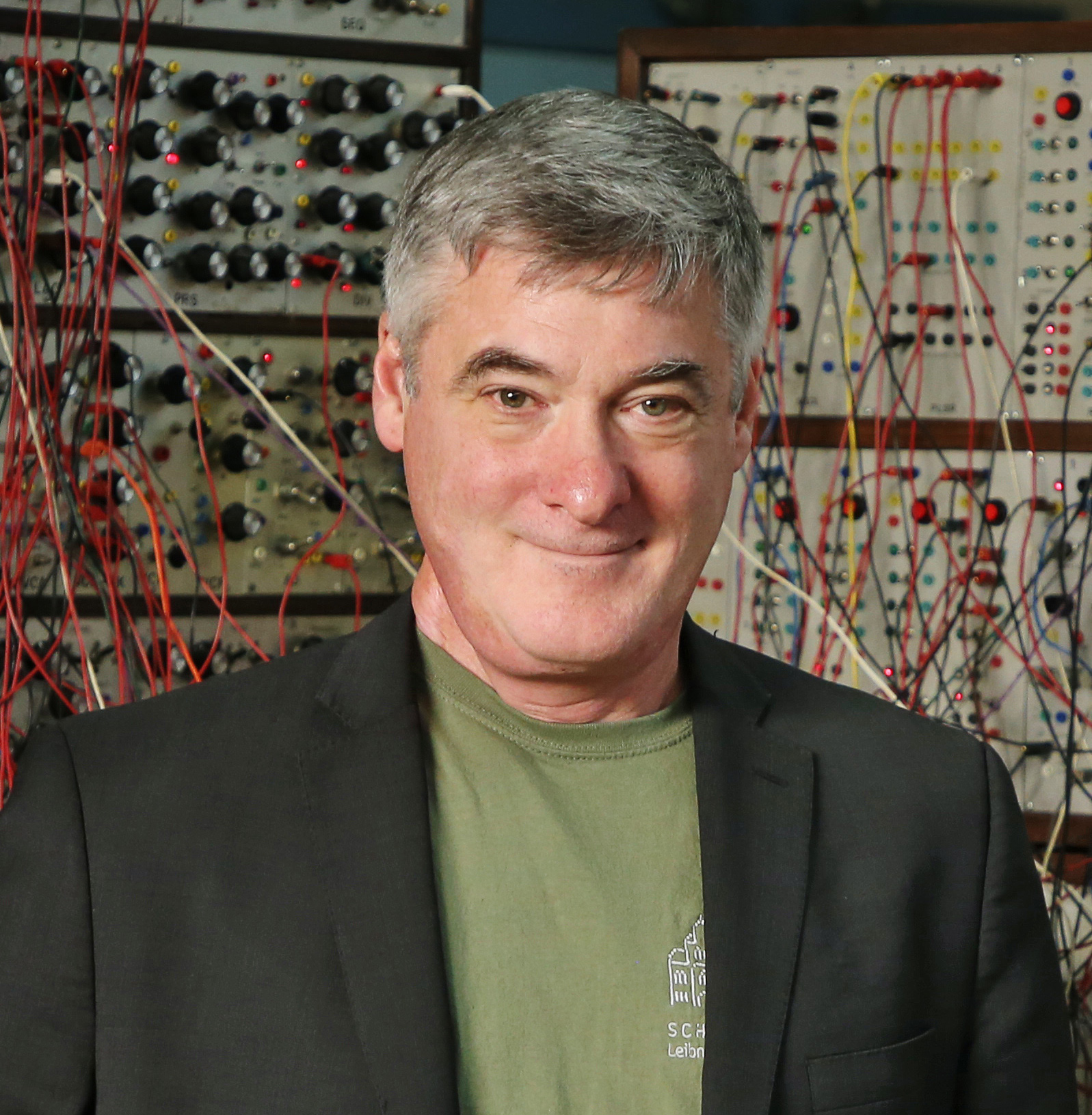
Joseph A. Paradiso, Alexander W. Dreyfoos (1954) Professor, MIT Media Lab
Joe Paradiso is the Alexander W. Dreyfoos (1954) Professor in Media Arts and Sciences at the MIT Media Lab, where he directs the Responsive Environments group and currently serves as Acting Academic Head. He received his PhD in Physics from MIT in 1981 as a K.T. Compton Fellow and a BSEE summa-cum-laude from Tufts University in 1977, and joined the Media Lab in 1994 after developing spacecraft control and sensor systems at Draper Laboratory and high-energy physics detectors at CERN Geneva and ETH Zurich. His current research explores how sensor networks augment and mediate human experience, interaction and perception. This encompasses wireless sensing systems, wearable and body sensor networks, ubiquitous/pervasive computing and the Internet of Things, human-computer interfaces, space-based systems, e-textiles and sensate materials, digital twins in virtual worlds, interactive music/media, and new musical controllers. He has written 400 articles and papers and won various awards in these areas. Joe has also been designing, building, and using his own electronic music synthesizers since the early 1970s, amassing one of the world’s most unique and extensive custom modular systems which has been featured in installations worldwide. He has always enjoyed composing electronic soundscapes, and seeking out edgy and unusual music while traveling the globe. More linked from http://paradiso.media.mit.edu/
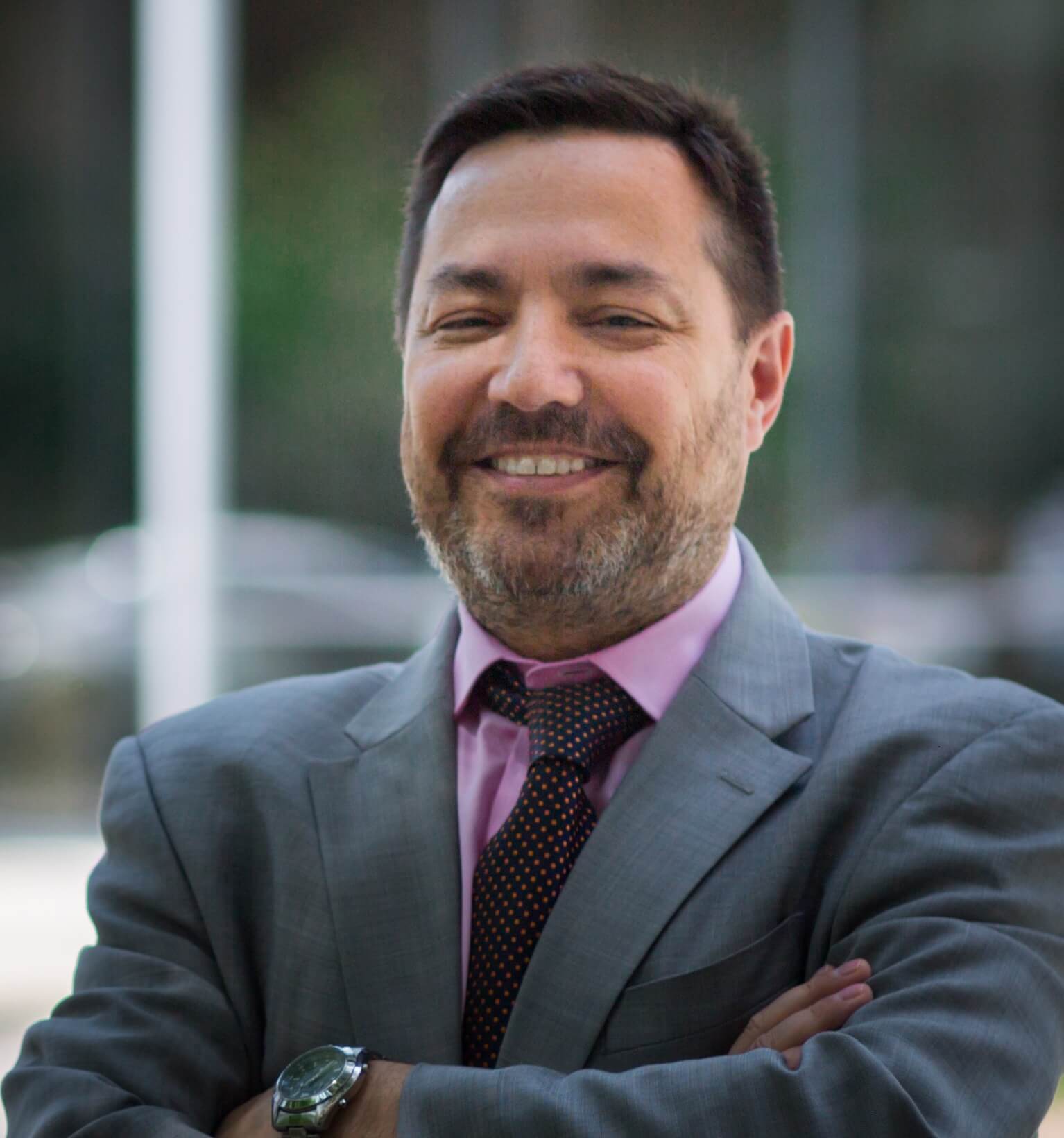
Paolo Bonato, Associate Professor, Harvard Medical School
Paolo Bonato, Ph.D., serves as Director of the Motion Analysis Laboratory at Spaulding Rehabilitation Hospital, Boston MA. He is an Associate Professor in the Department of Physical Medicine and Rehabilitation at Harvard Medical School. He holds Adjunct Faculty appointments at Massachusetts Institute of Technology, the MGH Institute of Health Professions, and Boston University College of Health & Rehabilitation Sciences. He has held Adjunct Faculty positions at the Wyss Institute at Harvard University, Northeastern University, the University of Ireland Galway, and the University of Melbourne. His research work is focused on the development of rehabilitation technologies with special emphasis on wearable technology and robotics. Dr. Bonato served as the Founding Editor-in-Chief of the Journal on NeuroEngineering and Rehabilitation. He serves as a Member of the Advisory Board of the IEEE Journal of Biomedical and Health Informatics and as Associate Editor of the IEEE Journal of Translational Engineering in Health and Medicine. Also, he serves as the Founding Editor-in-Chief of the IEEE Open Journal of Engineering in Medicine and Biology. Dr. Bonato served as an Elected Member of the IEEE Engineering in Medicine and Biology Society (EMBS) AdCom (2007-2010) and as IEEE EMBS Vice President for Publications (2013-2016). He served as President of the International Society of Electrophysiology and Kinesiology (2008-2010). He received the M.S. degree in electrical engineering from Politecnico di Torino, Turin, Italy in 1989 and the Ph.D. degree in biomedical engineering from Universita` di Roma “La Sapienza” in 1995.
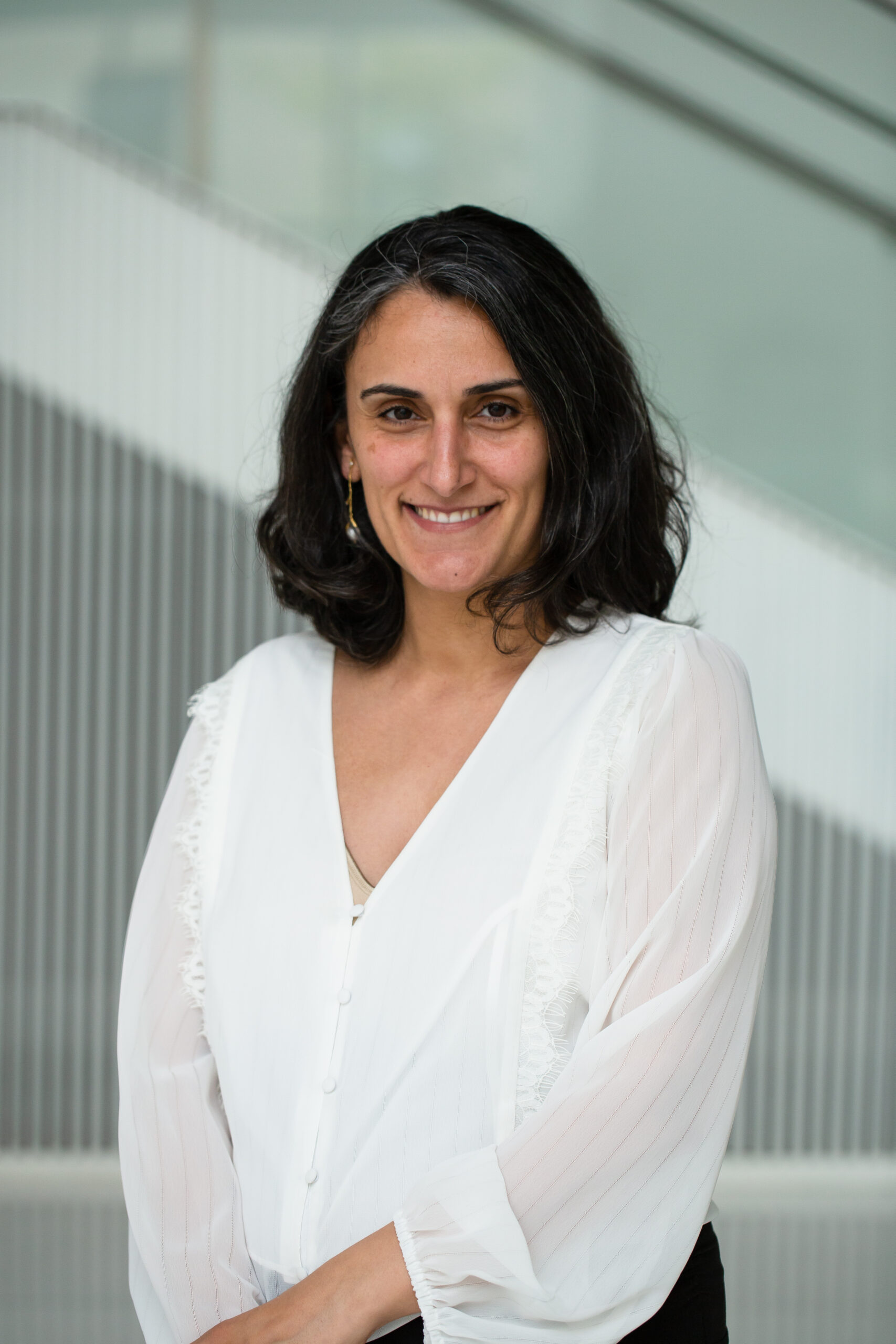
Canan Dağdeviren, Associate Professor, MIT Media Lab
Canan Dagdeviren is the LG Career Development Professor of Media Arts and Sciences at MIT Media Lab, where she leads the Conformable Decoders research group. The group aims to convert the patterns of nature and the human body into beneficial signals and energy. Dagdeviren earned her Ph.D. in Materials Science and Engineering from the University of Illinois at Urbana-Champaign, where she focused on exploring patterning techniques and creating piezoelectric biomedical systems. Her collective Ph.D. research involved flexible mechanical energy harvesters, multi-functional cardiac vessel stents, wearable blood pressure sensors, and stretchable skin modulus sensing bio-patches. As a Junior Fellow of the Society of Fellows at Harvard University, she conducted her postdoctoral research at the MIT David H. Koch Institute for Integrative Cancer Research. Here, she designed and fabricated multi-functional, minimally invasive brain probes that can simultaneously deliver drugs on demand and electrically modulate neural activity precisely and selectively for the treatment of neurological disorders, such as Parkinson’s disease. Dagdeviren’s work has been featured in many media outlets, including TIME, Washington Post, Smithsonian Magazine, Popular Mechanics, CBS News, BBC News and Physics World. In 2015, MIT Technology Review named her among the “Top 35 Innovators Under 35” and Forbes selected her as one of the “Top 30 Under 30 in Science”. Recently, Dagdeviren has been named as a Spotlight Health Scholar by Aspen Institute and World #1 in Medical Innovation Category of Ten Outstanding Young Persons of the World (TOYP) by Junior Chamber International. In 2016, Dr. Dagdeviren was awarded the Science & Sci Life Prize for Young Scientists in Translational Medicine Category and invited to attend Nobel Prize Ceremony in Stockholm, Sweden. Recently, Dr. Dagdeviren has been named as 2017 Innovation and Technology Delegate by the American Academy of Achievement. In 2019 Dr. Dagdeviren was among 87 of the nation’s brightest young engineers who have been selected to take part in the National Academy of Engineering’s (NAE) 25th annual U.S. Frontiers of Engineering (USFOE) symposium, hosted by Boeing in Charleston, South Carolina.

Sarah Suh, Associate Professor, University of Virginia
Dr. Sarah Sun is an Associate Professor in the Department of Mechanical and Aerospace Engineering and the Department of Electrical and Computer Engineering at the University of Virginia, where she directs the Wearable Sensing and Robotics Lab. She earned her Ph.D. in Electrical Engineering from Case Western Reserve University, Cleveland, OH. Her research is an interdisciplinary resort that integrates engineering innovation with human health and human behaviors. The primary focus is on human-centered monitoring and assistive technologies for smart and connected health. She is a recipient of the NSF CAREER Award, Best Service Award of IEEE/ACM CHASE 2022, and Outstanding Associate Editor Award for Smart Health.
